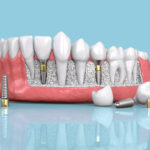
Herbal and Organic Products in Natural Dental Care
In an era where people are increasingly turning to natural alternatives for their health and wellness needs, the realm of dental care is no exception. The quest for natural solutions has led many to explore herbal and organic products as alternatives to conventional dental care options. But amidst the plethora of options available, a pertinent question arises: Are herbal and organic products truly effective in promoting dental health? Let’s delve deeper into this subject to uncover the truth behind natural dental care with the professional edina dentist.
Understanding Natural Dental Care:
Natural dental care revolves around utilizing ingredients sourced from nature to maintain oral hygiene and address dental issues. It encompasses a wide array of practices, including herbal remedies, organic oral care products, and holistic dental approaches. Advocates of natural dental care argue that these alternatives offer gentler, safer, and often more sustainable solutions compared to their synthetic counterparts.
The Rise of Herbal and Organic Products:
Over the years, there has been a noticeable surge in the popularity of herbal and organic dental care products. These products typically harness the power of botanical ingredients such as neem, tea tree oil, clove, and peppermint, among others. Organic toothpaste, mouthwash, and dental floss are just a few examples of the diverse range of products available in the market.
The Efficacy of Herbal and Organic Ingredients:
- Antibacterial Properties: Many herbal ingredients exhibit potent antibacterial properties that can help combat oral bacteria responsible for tooth decay and gum disease. For instance, tea tree oil has been lauded for its ability to inhibit the growth of bacteria in the mouth, thus reducing the risk of dental infections.
- Anti-inflammatory Effects: Herbal ingredients like chamomile and calendula possess anti-inflammatory properties that can soothe gum inflammation and promote oral healing. These natural remedies offer relief to individuals suffering from conditions such as gingivitis and periodontitis.
- Fresh Breath Solutions: Peppermint, spearmint, and other herbal extracts are commonly used to freshen breath in natural dental care products. These ingredients not only impart a refreshing flavor but also help mask odors and leave the mouth feeling clean and invigorated.
- Gentle Whitening: Some herbal ingredients, such as activated charcoal and baking soda, are believed to have mild whitening effects on teeth. While not as potent as professional whitening treatments, these natural alternatives can help remove surface stains and brighten the smile over time.
Addressing Concerns and Limitations:
Despite the growing popularity of herbal and organic dental care products, it’s essential to acknowledge their limitations and address common concerns:
- Scientific Evidence: While many herbal ingredients have been traditionally used in oral care, scientific evidence supporting their efficacy is often limited. More research is needed to validate the claims surrounding these natural remedies and their impact on oral health.
- Regulatory Oversight: The regulation of herbal and organic dental care products varies across different jurisdictions. Consumers should exercise caution and choose products from reputable brands that adhere to stringent quality and safety standards.
- Individual Sensitivities: Natural ingredients, while generally considered safe, may still cause allergic reactions or sensitivities in some individuals. It’s advisable to perform a patch test or consult with a healthcare professional before using new herbal products, especially if you have known allergies.
- Comprehensive Oral Care: While herbal and organic products can be valuable additions to a natural dental care routine, they should not replace essential oral hygiene practices such as brushing, flossing, and regular dental check-ups. A holistic approach that combines natural remedies with conventional dental care is often the most effective way to maintain oral health.
Conclusion:
In conclusion, herbal and organic products offer promising potential in the realm of natural dental care. Their antibacterial, anti-inflammatory, and breath-freshening properties make them attractive alternatives to conventional oral care products for many individuals seeking gentler and more sustainable options. However, it’s essential to approach natural dental care with a critical mindset, understanding its benefits, limitations, and the need for further research. By integrating herbal and organic products into a comprehensive oral hygiene routine, individuals can strive towards achieving optimal dental health in harmony with nature.


















